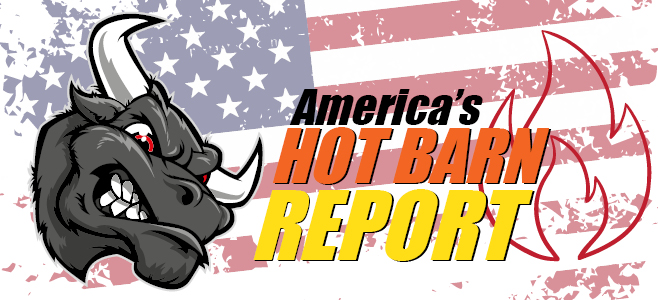

From Washington with Karina Jones is brought to you by BillionAuto.com one of the nation’s largest automotive websites!
Karina Jones is a real-life ranch wife in the Nebraska Sandhills, Field Director for R-CalfUSA and one of the most highly sought-after speakers in the cattle industry nationwide!
And now the NEW VOICE of Farm & Ranch Country, Karina Jones –
Hello everyone, out there in farm and ranch country!
Amid all of the issues swirling in Washington DC right now, America’s heartland is focused on the issue that affects them the most, The Farm Bill! And for good reason because the current statistics surrounding farming and ranching are pretty bleak.
According to the US Department of Agriculture, net farm income is forecast to decrease 15.9 percent relative to 2022, after adjusting to inflation, that is a decrease of 18.2%.
Cash receipts from the sale of agricultural commodities are forecast to decrease by $23.6 billion or by 4.3 percent. Total crop receipts are expected to decrease by 3.1 percent from the forecast 2022 level, led by lower receipts for soybeans and corn. Total animal/animal product receipts are expected to decrease by $14.7 billion or 5.7 percent, following declines in receipts for milk, eggs, broilers, and hogs.
Meanwhile, total production expenses, including operator dwelling expenses, are forecast to increase by $18.2 billion or 4.1 percent in 2023. Interest expenses and livestock/poultry purchases are expected to see the largest dollar increases in 2023 relative to 2022.
Also contributing to forecasted lower income in 2023 are lower direct Government payments and higher production expenses. Direct Government payments are forecast to fall by $5.4 billion or 34.4 percent from 2022 in 2023. This decrease is expected largely because of lower supplemental and ad hoc disaster assistance in 2023 relative to 2022.
As the USDA puts out this data, especially the some of the last figures related to the lower direct government payments you would think they would realize that artificially bolstering our agriculture industry is not building a sustainable or resilient ag supply chain. Infact, it might be crippling us for the sake of elevating global trading relationships instead.
Is it really fair to ask the American public to subsidize agriculture and nutrition programs? In the end who is the big winner? It looks to me like the only entity profiting is the global corporations that control every aisle of the grocery store. Clearly from the data, farmers and ranchers are on the losing end of the stick. The once touted “cheap food policy” is no failing the American public. Not only is the food no longer cheap, sometimes it is no longer on the store shelf.
It is time for Washington DC to put the American food supply chain under a microscope during this Farm Bill session and vow to implement policy changes that will work for farmers and ranchers that will build back strength and hope in rural America and ensure that food security is a top priority. Relying on foreign nations to feed us will leave us hungry and weak and I mean that in more ways than one.
That’s all for today folks. I will see you right back here next week bringing you ag news from our nation’s capital to this great American radio station!

Karina ranches with her husband, Marty, and 4 children near Broken Bow, NE. She grew up in western NE, with roots also in southwest SD. The cattle industry and raising kids is her passion.
Tune in Fridays on The Hot Barn Report, where she deep dives into cattle industry issues and highlights industry reforms or listen to Ranch Raised with Karina Jones a slice of daily life on the Jones Ranch.







